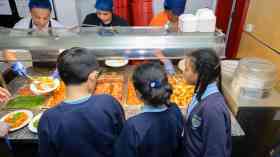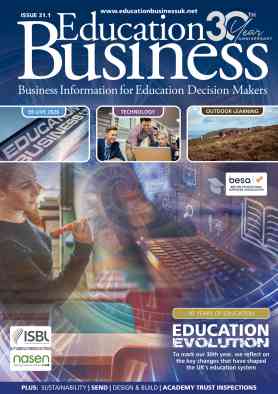The skills to teach Computer Science
 Primary school teachers across England are being invited to learn how to explain the concept of algorithms to their classes using the Hokey Cokey and instructions for making a jam sandwich, thanks to a new series of computing workshops run by theBarefoot Computing Project. The scheme aims to help primary school teachers implement the new computing curriculum which comes into force in September. It is being led by BCS, The Chartered Institute for IT, in partnership with BT, and is funded by the Department for Education.
Primary school teachers across England are being invited to learn how to explain the concept of algorithms to their classes using the Hokey Cokey and instructions for making a jam sandwich, thanks to a new series of computing workshops run by theBarefoot Computing Project. The scheme aims to help primary school teachers implement the new computing curriculum which comes into force in September. It is being led by BCS, The Chartered Institute for IT, in partnership with BT, and is funded by the Department for Education.
The Barefoot Computing project will provide cross-curricular computer science resources for primary school teachers with no previous computer science knowledge. Teachers will gain an understanding of ideas and concepts such as algorithms, abstraction and data structures, how they occur naturally in many other disciplines they teach, and how they can be simplified to introduce these principles to children as young as five.
PROGRAMMING TOOL
Further support is being given to classrooms by making ScratchJr, a new programming tool specifically aimed at five to seven year olds, available in UK primary schools for the first time from this Autumn. Children can access the application, developed at the Massachusetts Institute of Technology (MIT), via iPads and use basic coding skills to create their own interactive stories and games. In doing so, children learn important design and problem‑solving skills, as well as developing their numeracy and literacy abilities.
ScratchJr is a collaboration between the DevTech Research Group at Tufts University, the Lifelong Kindergarten Group at the MIT Media Lab, and the Playful Invention Company. The ScratchJr project has received generous financial support from the National Science Foundation, the Code-to-Learn Foundation, the LEGO Foundation, and BT.
Primary heads and teachers recently took part in the first UK demonstration of the application, at the first conference out of 800 free events taking place across England organised by the Barefoot team. These events will equip teachers with the skills and knowledge needed to incorporate the new computing curriculum into their lessons.
At the time of the event the then Education Minister Elizabeth Truss said: “Our new, forward-thinking, computing curriculum, backed by industry experts, will raise standards, show students how to make computers work for them and give them the skills and knowledge they need to compete with their peers from around the world.
“Teachers will be a key part of this and we want them to have the confidence and expertise to teach this exciting programme. That’s why we’ve invested more than £3 million in innovative training schemes, like the Barefoot Computing project, which will help equip primary school teachers to deliver the new curriculum.”
TRANSFERRABLE SKILLS
Bill Mitchell, director of Education at the Chartered Institute for IT, said: “Based on what primary teachers who are already teaching the new computing curriculum are telling us, we believe that teaching children computing is not just important in its own right, it’s also important because it improves numeracy and literacy skills. What most people don’t realise is that computational concepts underpin much of what we do in our daily lives.
“For example, making up a dance routine for something as simple as the Hokey Cokey to impress our friends, figuring out how to streamline a supply chain business process, developing a computer simulation to model how a new antibiotic will impact on the immune system, or just doing long multiplication, are all examples of using algorithms to solve problems. By demystifying concepts like algorithms we aim to give teachers the confidence that they can successfully teach the new computing curriculum to children from the age of five.”
Dr Tim Whitley of BT Group said: “It’s vital that IT and coding skills are introduced to children at an early age so we’re proud to be supporting this scheme which will raise awareness and drive knowledge amongst both teachers and children.
“We’re also taking action to engage young children in computer science by bringing ScratchJr to UK classrooms for the first time. This new application has been specifically designed to engage young children in learning the basics of computer programming in a fun and interactive way. We believe ScratchJr will act as the first stepping stone towards encouraging children to choose an exciting career in IT and technology later in life.”
SUPPORT SESSIONS
Between now and May 2015, the Barefoot Computing project will hold a series of 800 computing workshops in primary schools across England. Run by volunteer professionals, including those from BT and the ICT and education sectors, these events will introduce the new computing curriculum to teachers and will explain the support available to them through Barefoot and other related projects.
The project will create primary school‑friendly classroom resources that exemplify how to teach computing through topics that are relevant to the cross-curricula primary school environment. For example, the materials provided will cover how to write computer games and other classroom computing activities for children from Year 1 (age five) to Year 6 (age 10/11) that also support progression in subjects such as literacy, maths, history and science.
The resources will include teacher support notes, and in addition to the Barefoot workshops, the project team will also develop Barefoot communities enabling teachers to share ideas and good practice around teaching computing with other primary teachers.
MORE SCHEMES
The Barefoot Computing project is one of several projects being run by the Institute and Computing At School (CAS) to help teachers prepare for September. Another central project is the CAS Network of Teaching Excellence in Computer Science; a network of Master Teachers offering fellow teachers CPD training and support. It includes over 750 schools and 70 universities.
One of the key principles behind the Network of Excellence (NoE) is local, face‑to‑face training by teachers for teachers – to help them deliver the new curriculum. There are a range of professional development courses now being offered around the country to help meet the needs of the teaching community in all aspects of the new curriculum. Courses may take place in schools, universities and other venues, and are being organised at various times of day – including one-day courses, twilight sessions, evening classes and holiday courses – to be as convenient to teachers as possible.
The programme aims to train and develop a significant number of Master Teachers who will in turn, train and support teachers in their local area. The emphasis is very much on face-to-face support, training and networking, backed up by an active website of resources and discussions. All courses offered through this CPD initiative will be delivered by trained and approved providers (Master Teachers) and are evaluated fully to ensure quality.
CAS Master Teachers have been (and are still being) recruited and trained to offer CPD to their local schools. They are experienced teachers, with good subject knowledge of computing. They have the skills needed to support other teachers and can offer advice on how to get ready for the new computing curriculum.
The NoE offers teachers many opportunities for professional development. Individual teachers can join CAS (via their website) and schools can join the Network of Excellence. There are 285 lead schools in the NoE offering support and advice. CAS Online can also help teachers get ready to deliver computing at school. The CAS community website offers teachers resources and details of events, as well as a place to ask questions and meet other similarly minded teachers. CAS Online already has almost 10,000 members and supports both secondary and primary teachers.
Teachers can find mini-CPD sessions, support and informal networking opportunities through the 90+ CAS regional hubs that hold termly meetings throughout the UK. Other projects to look out for include: QuickStart Computing, sponsored by Microsoft, which will provide free off the shelf short CPD courses which can be run by teachers in school, and scholarships to encourage more people to become computing teachers.
FURTHER INFORMATION
www.bcs.org
Latest News
29/01/2026 - 10:37
The Education Business Awards recognise the leadership, innovation, operational decisions and strategic planning that help schools run more effectively and deliver better environments for both staff and pupils.
29/01/2026 - 10:26
The Education and Work and Pensions Committees have launched a joint inquiry investigating how the Government’s new Child Poverty Strategy, announced last month, can meet its aims.
29/01/2026 - 09:23
Charity School Food Matters has released learnings from its school food improvement programme, Nourish, and has formed a roadmap to success for school food policy.
28/01/2026 - 09:57
Multi-academy trusts are increasingly turning to artificial intelligence to support teaching, learning and school management, but evidence of its impact remains limited, according to new research from the Education Policy Institute (EPI).
27/01/2026 - 10:04
The government is running a tender for industry to co-create AI tutoring tools with teachers, with the goal of bringing these tools to a similar level of quality of personalised one to one support.







